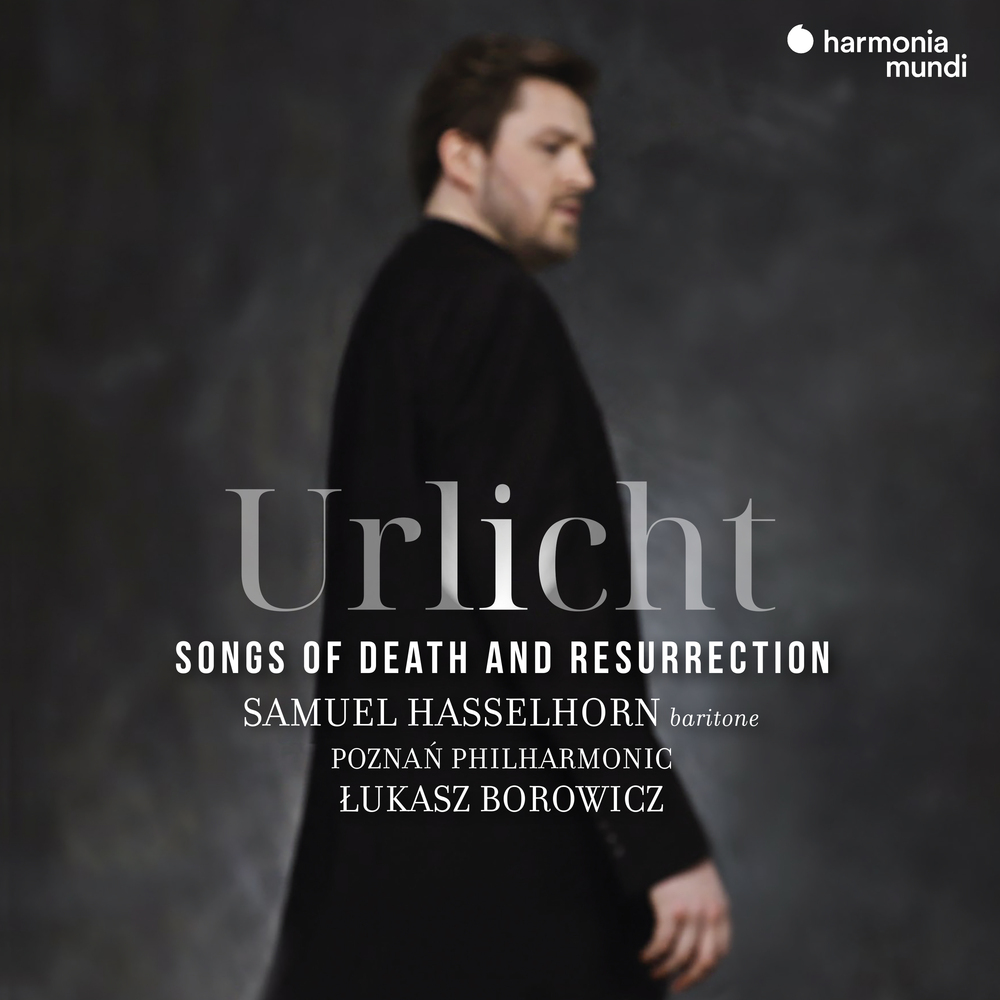
It was merely a fortnight or so ago that the world premiere was held of the newest album recorded by the Poznań Philharmonic Orchestra under Łukasz Borowicz with the baritone Samuel Hasselhorn. The recording, which also features The Poznań Nightingales, the Boys and Men’s Choir of the Poznań Philharmonic, has already garnered excellent international reviews and distinctions.
Entitled Urlicht. Songs of Death and Resurrection, the album published by the renowned label Harmonia Mundi has just been awarded the SUPERSONIC distinction by the prestigious Luxembourg-based music portal PIZZICATO, which also published Remy Franck’s review of the recording.

This is a remarkable CD, not only because of Samuel Hasselhorn’s singing, which is outstanding as expected, but also because of the conductor Lukasz Borowicz. I have made it known in a long series of reviews that I hold him in high esteem. But the sound he produces in this program with the Poznan Philharmonic is phenomenal. In no other recording that I know of does so much happen in the orchestra in Mahler’s Revelge as you can hear in this recording. This is the whole Mahler theatre, the sonic cabinet of curiosities in full! But that’s not all: in Urlicht, the orchestra envelops the voice perfectly and, together with the instrumental parts, brings it to optimum effect, because the music is really complete. And Haselhorn’s voice is no less fascinating in this recital, his singing is dramatically gripping, with colourful and dynamic nuances and a concise presentation of the text. Revelge is not only dramatic with him, it is full of relentlessness, which makes the inner compulsion of the marching drastically audible, regardless of losses. Borowicz and the orchestra reinforce this thoughtless compulsion, which also makes the bones march in rank and file. Engelbert Humperdinck’s Verdorben! Gestorben! from the opera Königskinder is no less gripping because Hasselhorn sings very sensitively and Borowicz makes the rhapsodic quality of the opulent orchestral accompaniment communicative and evocative.
Completely different sounds are offered to the listener in Pierrot’s Tanzlied from Korngold’s Die Tote Stadt, in which the charm and bitterness of Pierrot are ideally combined in Hasselhorn’s lyrical singing to make us empathize with the fate of this clown.
What follows in Mahler’s Um Mitternaht is once again top-notch, as Borowicz places the voice in a luxury box with a wonderfully present and colorful orchestra. In comparison, Hampson and Bernstein sound almost pathetic and mannered.
Hasselhorn sings towards death in a very composed and almost positive and heroic way, without any lachrymose, surrounded by a colorful and grandiose orchestral sound, which has not often been heard in this rhetoric, neither with Karajan nor with Thielemann and Boulez: nowhere is the symbiosis of voice and orchestra as perfect as in this recording.
This is also true of the absolutely phenomenal and exciting Erlkönig setting of Herr Oluf. Mahler’s Urlicht sounds all the more moving in an interpretation marked by naturalness and honesty.
In Alexander von Zemlinsky’s Der alte Garten everything blossoms in the extreme chromaticism of the music, and the fascinating orchestration with the beautifully interwoven vocal lines makes this song transcend into beauty, not least thanks to Hasselhorn’s imaginative and vocally magnificent performance.
There is great romanticism in Braunfels’ description of a soldier’s grave, which contrasts sharply with the surreal duet between Marie and Wozzeck in Berg’s opera. But Marie is actually lost to the world through murder, while Mahler describes death in a completely different way. With Haselhorn, it becomes almost tender and movingly natural.
Borowicz underpins this with just as much beauty in the orchestra. Nothing is lost and you can hear everything interacting beautifully.

